Participatory Approaches in Environmental Education in the Czech Republic
A brief overview of the general situation in the field of environmental education in the Czech Republic
Compared to other Central European countries, the Czech Republic has a relatively functional and stable system of ecological/environmental education (EE), which was formed in partnership between the public administration and the non-profit sector at the beginning of the 1990s; and it has been continuously developing since then (despite fluctuations during periods of limited support from the political representation after 1994 and 2010). This was due to the existence and activity of a number of organisations and experts and their high degree of their cooperation.
The EE system owes its success to the following factors:
- It’s been embedded in legislation and strategies (policies) – directly in laws and in the State EE Programme.
- It’s been embedded in the school curriculum as a compulsory part of teaching at all levels of school (from kindergarten to secondary education).
- It has a differentiated system of financial support from public administration (with a relatively stable, nominal amount of support for EE from the Ministry of Environment, SFŽP (the National Environment Programme)). Most regions and some municipalities were supplemented by more general subsidy programmes from some other ministries, such as the Ministry of Education in the field of non-formal education. There were additional opportunities for support from European and other international funds as well (e.g., within the EEA or Switzerland). The diverse financial support has enabled the continued function of the EE system, even if some sources have been temporarily withdrawn.
- A functional network of organisations specialised in EE and education for sustainability (environmental education centres, eco-centres, etc.).
- The long-term staffing in various public administration offices, such as the Ministry of Environment, most regional authorities, and currently, the Ministry of Education and Science.
- School staffing positions, such as the existence of an EE coordinator in many schools.
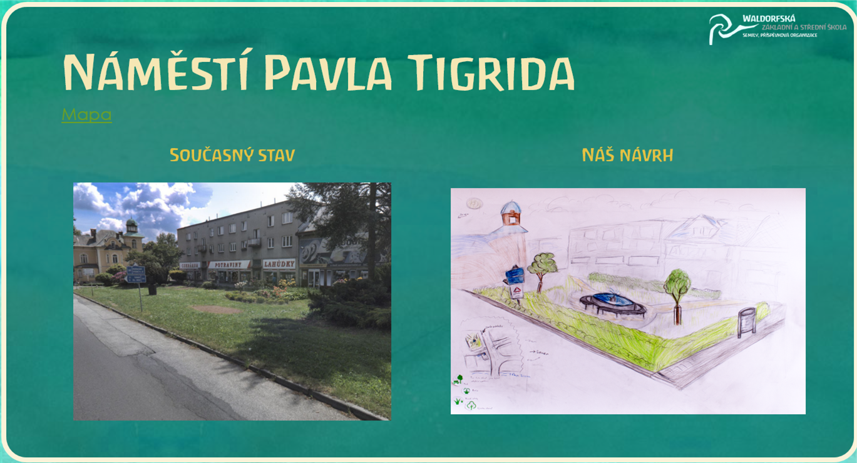
In the National school curriculum (the Framework for Educational Programmes (FEP)1), EE is included as a compulsory part of the curriculum at the primary and secondary level as a cross-cutting theme (one of 5 or 6, depending on the school). While there are no obligatory hours allocated to EE, it is a compulsory subject area that must be fulfilled by either including different subjects in the curriculum or allocating special units for EE in the context of merging subjects or using available hours (as “projects” or integrated learning units). This freedom to adapt to the conditions of a particular school is an advantage; and concurrently, EE is often implemented in a formal way in a significant number of schools. It’s evident in research that EE implementation works better in schools with a well-motivated and educated school EE coordinator as well as in schools that cooperate with organisations that focus on EE and education for sustainability2.
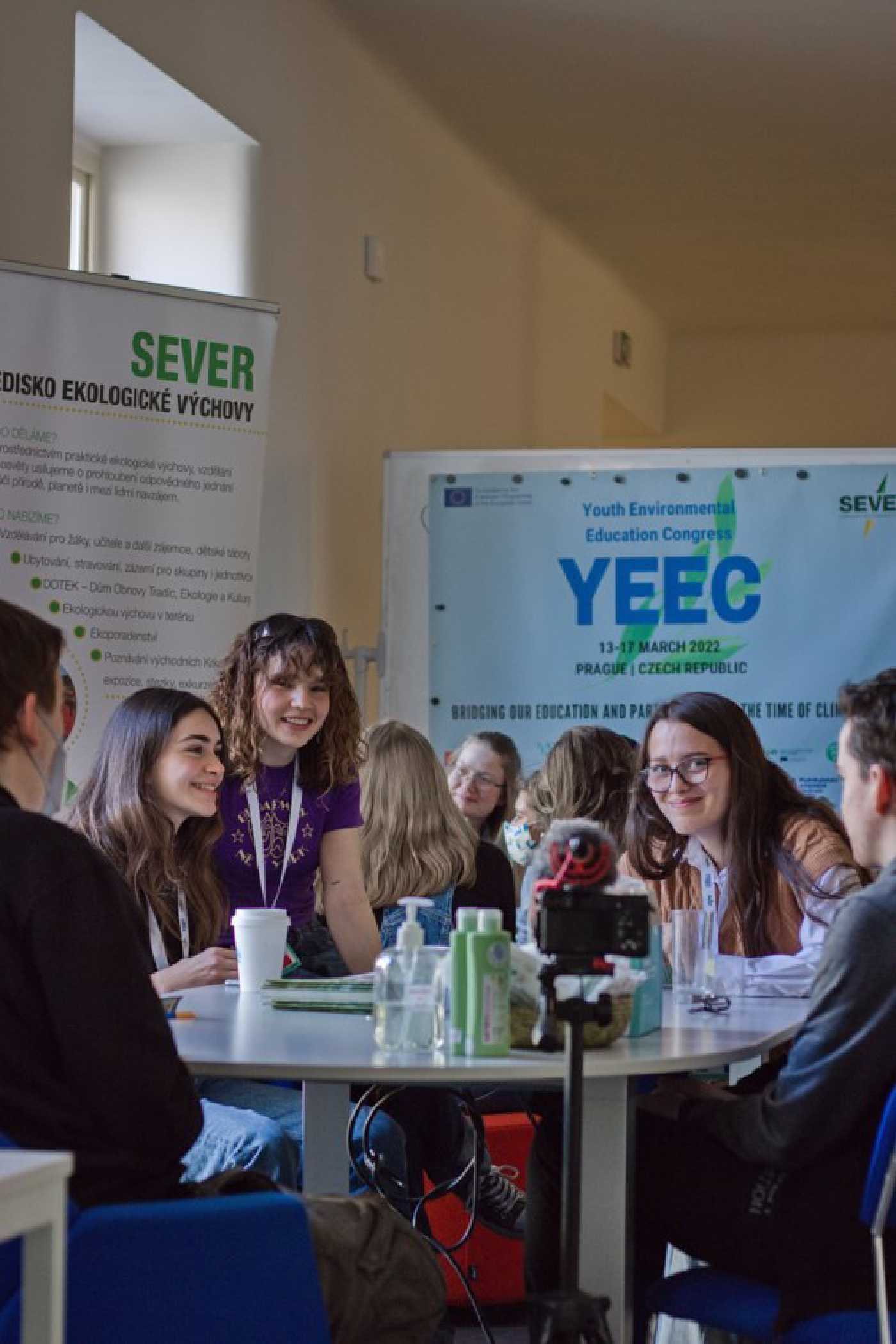
There are several interesting EE programmes in the field of non-formal education (see below). Yet, despite the relative stability of the EE system (compared to other countries), the level of involvement of individual organisations, schools, or cities in EE implementation remains unsatisfactory. The typical problems include the lack of adequate funding (including below-average salaries), a heavy dependence on highly variable resources (ad hoc grants), and a limited staff capacity (dependence on one person or limited group of people).
The content of EE in many schools and institutions tends to be narrowed down to some traditional or easy to grasp and often narrow topics and practices (e.g., practicing waste-sorting, memorising lists of protected areas or simple food chains, etc.) It is the more challenging methods and approaches, including the participatory approaches, that are underrepresented in practice. Regardless, there is a relatively wide range of methodological support, and such examples include the promotion of outdoor learning3, enquiry-based learning4, place-based learning5, and climate education6 or methodological materials showing the breadth of EE objectives and themes7.
An area that deserves further development is the research and validation of EE results. This area has seen an increase in development over the last 10 years, from single probes to more frequent and often large-scale investigations8. There are still limitations, however, both in terms of the limited capacity of researchers and evaluators themselves and in barriers on the part of EE programme implementers (e.g., high workloads, a lack of expertise, a lack of funding to pay for evaluations, and the fear of errors in implementation or of results). Additionally, some politicians (at various levels, from the local to the national) continue to have an ideologically-loaded view of the need for and conceptualisation of EE, and that remains a problem.
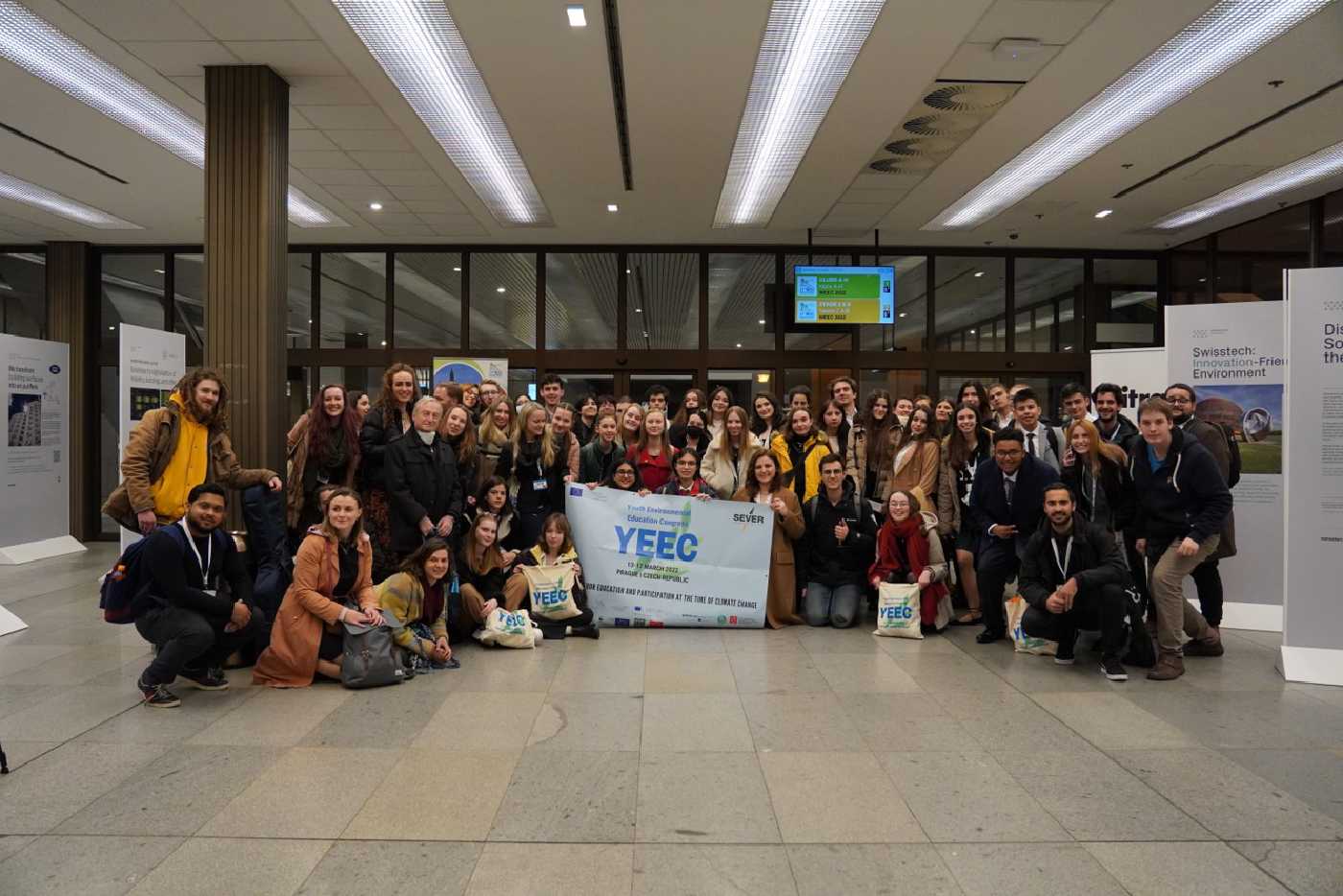
The situation and conditions for participatory approaches in education in the Czech Republic
The conditions for participatory (student involvement in decision-making) approaches in education are related to the overall openness of society and public administration offices to citizens’ participation. The Czech historical tradition was not very open to civic participation for most of the 19^th^ and 20^th^ centuries; since the early 1990s, however, there has been a gradual shift in the public administration’s attitude towards participation, which has had consequent implications for education. The importance of participation in general, and in education, has been most clearly emphasised in the Strategic Framework of the Czech Republic 20309, which should be the basis for the various “sectoral” government strategies; for example, a methodology on participation for the public administration has recently been developed10 and the importance of participation in education is now reflected in the Czech Education Policy Strategy for 2030+11. Specifically, in relation to EE, the importance of participatory approaches has been highlighted by the State EE Programme12 .
Participatory approaches can be characterised as a strategy through which students can participate in defining the objectives and learning content or in sub-aspects of learning, such as involvement in assessment, self-assessment, rulemaking, etc. Students can also be involved in decision-making within the school and community. This is a very important approach for EE because, among other things, it reinforces participants’ “self-efficacy beliefs”; it’s evident from research and various studies that this is a fundamental prerequisite for environmentally responsible behaviour, as it influences students more significantly than environmental knowledge and pro-environmental attitudes13.
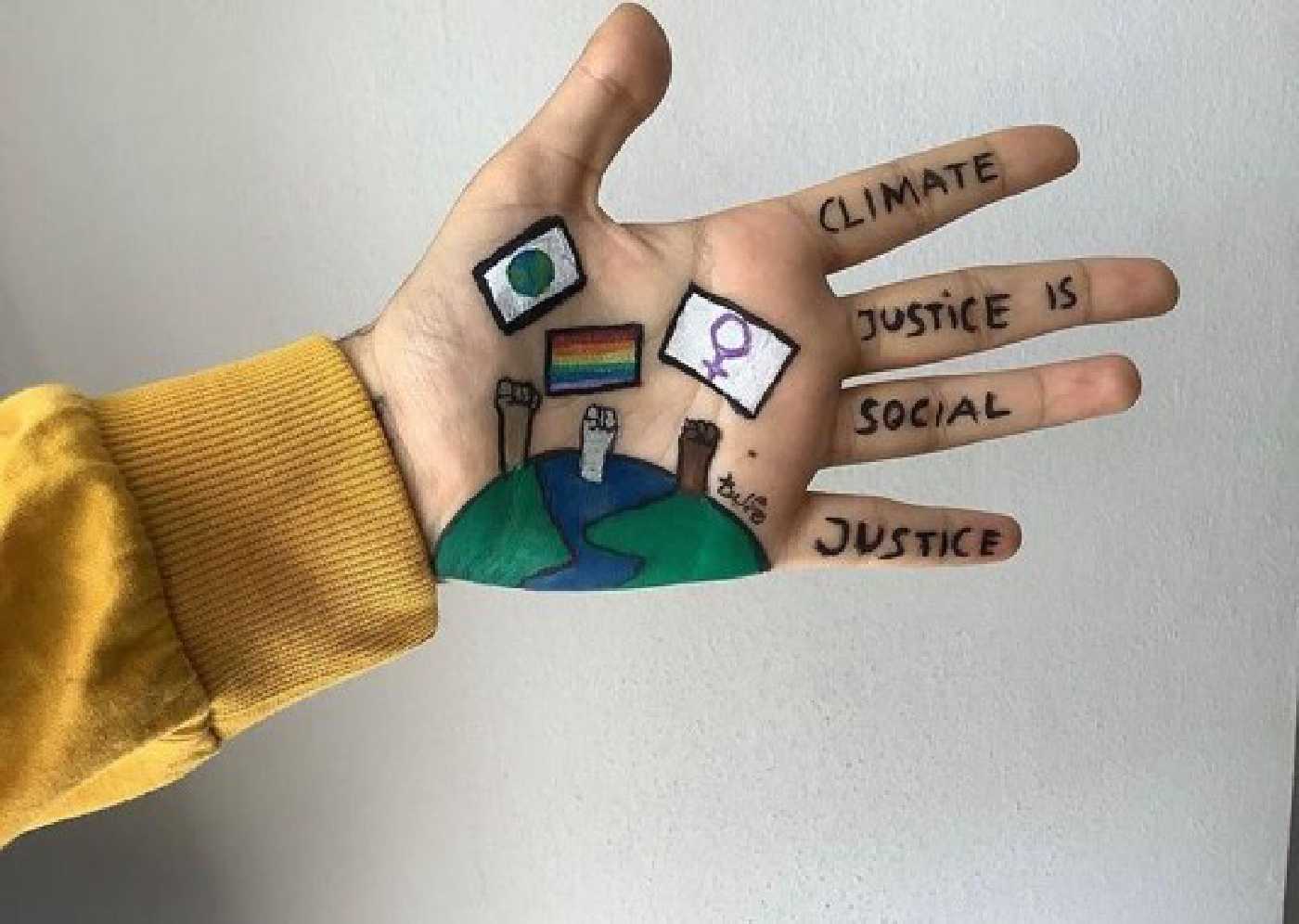
While the national curriculum (RVP) creates space for such participatory approaches (meaning it does not restrict them), it does not encourage schools and teachers enough (meaning it creates very few incentives at a rather general level). The need for students’ participation is emphasised in the RVP ZV14 in relation to students’ educations and participation in the cultivation of the school atmosphere (school life) in general terms: primary education at Key Stage 2 should enable a mode for “greater responsibility to be given to students in education and in the organisation of school life.” Yet, at the level of key competences, involvement in decision-making is included only in a partial way; for example, in the development of Social and Personal Competences. The creation of an atmosphere where students can work effectively in a group and participate together with teachers in the development of rules for teamwork should be achieved. While the civic competences describe some of the skills and competences related to participation (respect for the beliefs of others, awareness of one’s rights and responsibilities, active participation in cultural and sporting activities, and decision-making for sustainable development), the ability to participate directly in the life of the school or community is not mentioned in the key competences.
The RVP also sets out the conditions of education which schools should strive to move towards; this includes the “participation of students in education and school life, which then translates into a model of a democratic community, or a community built on the principles of freedom, responsibility, stability provided by a set of common rules, justice, cooperation, etc.”
The biggest impetus in the RVP is found in cross-cutting themes like “the education of a democratic citizen”, “environmental education”, and “multicultural education”. The cross-cutting theme “education for a democratic citizen” describes the importance of students’ participation in school life:
The cross-cutting theme in primary education uses the thematic areas as well as the students’ experiences to implement it [EE] where the overall school climate (relations between all educational actors based on cooperation, partnership, dialogue, and respect) has created a democratic classroom atmosphere (serving as a ‘laboratory of democracy’). In this environment, students are more motivated to voice their opinions in discussions and participate democratically in the decisions that will affect the whole community. At the same time, they can verify the importance of respecting the rules for themselves and participate in the creation of new rules in the interests of justice. (RVP)
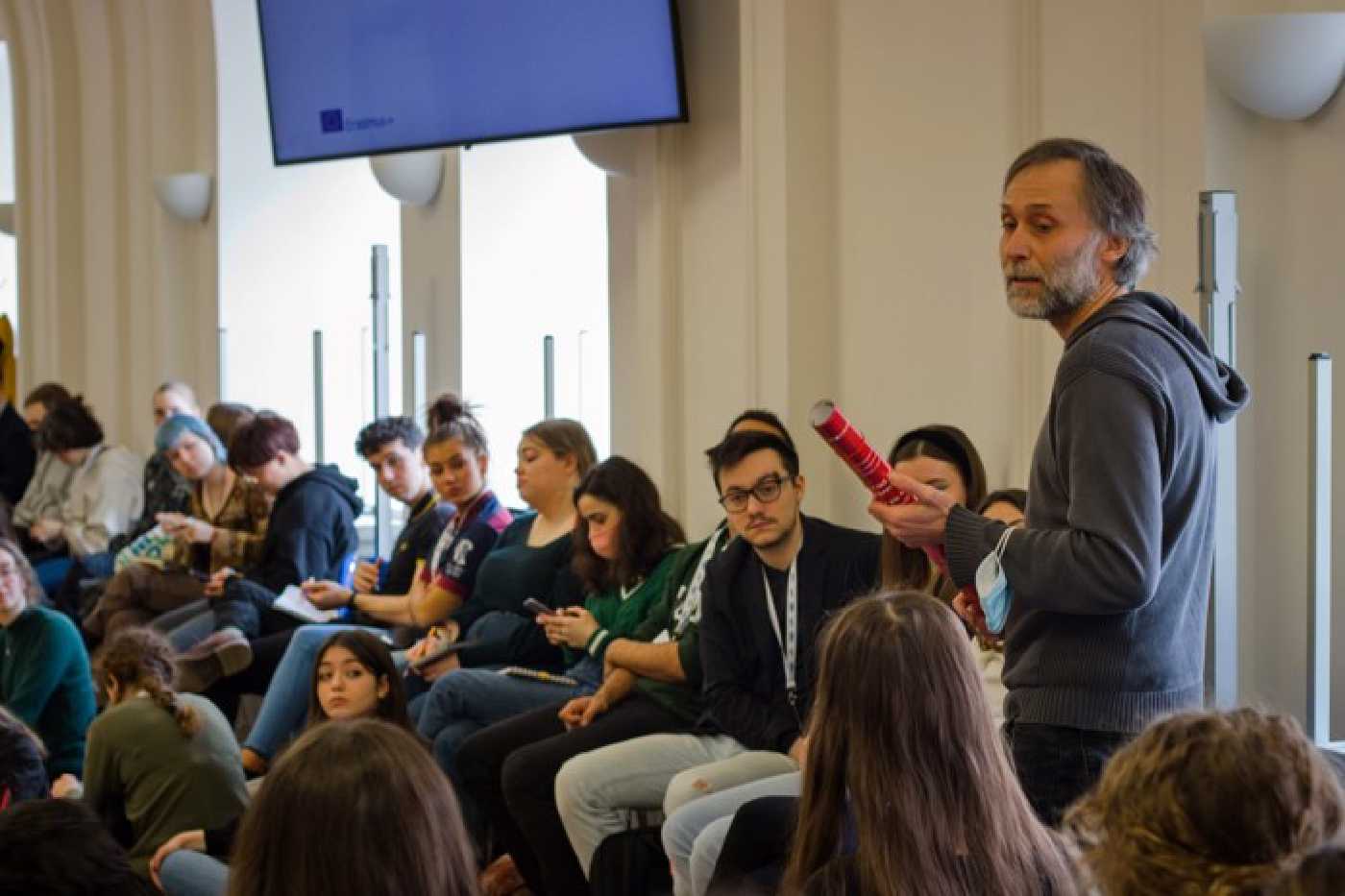
According to the RVP, it’s expected that the application of the cross-cutting theme “education of the democratic citizen” will “enable students to participate in decision-making for the whole group, creating an awareness of their own responsibility for these decisions and of their consequences”; this should “lead to an open, active, involved attitude in life.” Specific recommendations are contained in the thematic scope for the cross-cutting theme on “civil society and school”. The theme must be included in the curriculum in a binding way as is described by the RVP as follows: “[t]he school [should serve] as a model of open partnership and democratic community, [should create] a democratic atmosphere and democratic relations within the school, [and the] ways of applying democratic principles and values for the everyday life of the school [must be implemented] (the importance of active involvement of students in student self-government, student councils, or student parliaments); forms of student participation in local community life; [the] cooperation of the school with administrative bodies and institutions in the community.” According to the RVP, it is important that students’ participation in the life of the local community should also be part of the curriculum in addition to students’ participation in the life of the school. Participation in this cross-cutting theme is also covered under the topic heading “Forms of civic participation in political life”, but this does not explicitly emphasise the involvement of students themselves.
The inclusion of the cross-cutting themes of Environmental Education and Multicultural Education is also intended to lead to students’ involvement, but without further specification (“leads to involvement in solving problems related to environmental protection”; “leads to involvement in combating manifestations of intolerance, xenophobia, discrimination, and racism”; “teaches to perceive oneself as a citizen who actively participates in shaping the relationship of society to minority groups”).
Within the educational disciplines (“subjects”), however, only Education for Citizenship touches on participation within the recommended curriculum, and only in relation to student self-government.15
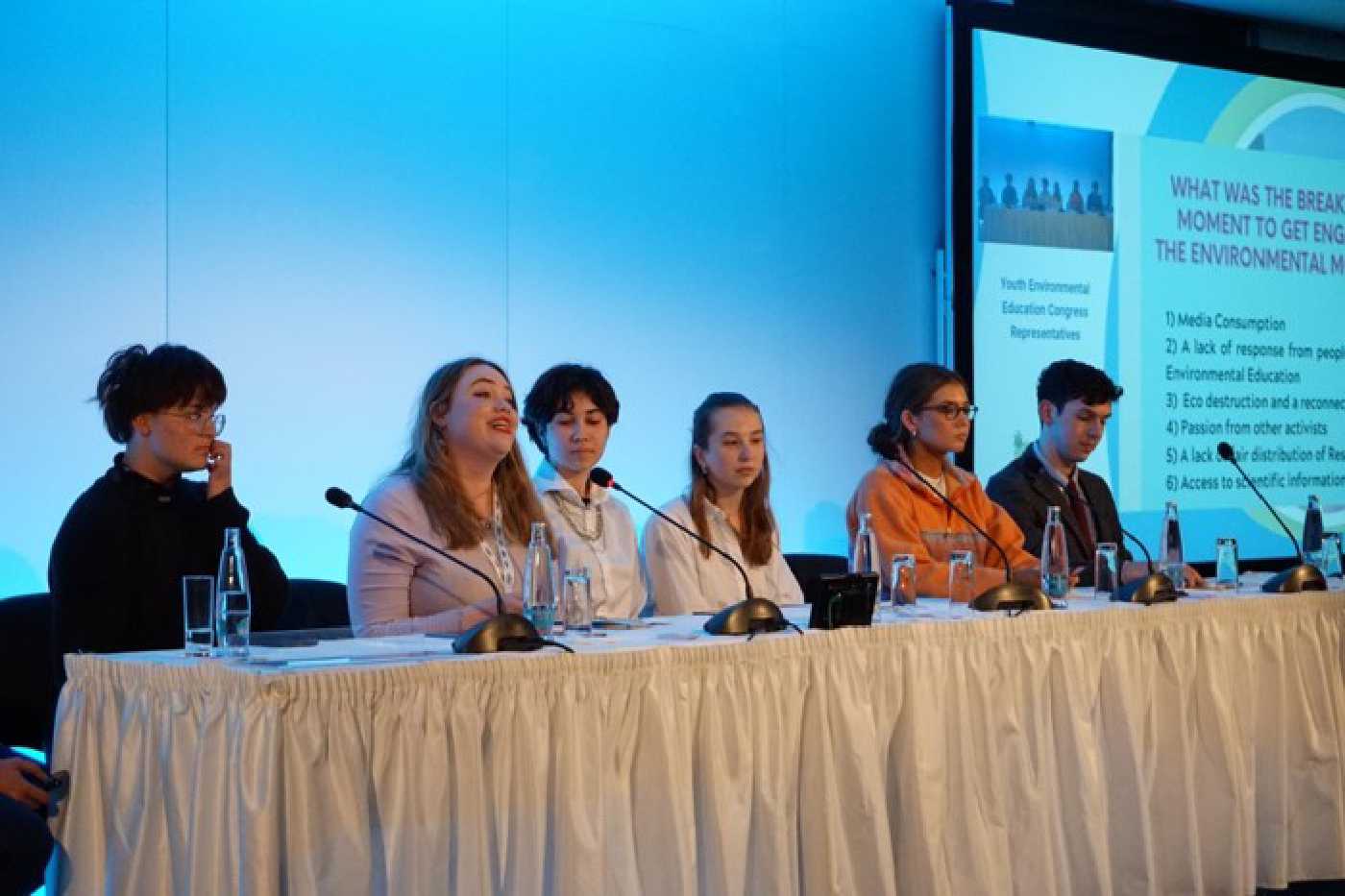
“Working on the ‘School for Sustainable Living’ project has given me a lot of new experience (in the form of teaching methods and practices) that I can apply in my lessons and in my approaches to students; namely, the opportunity to use a coaching approach with students, handing over responsibilities to students, and taking on a ‘guiding’ role in relation to the students.”
Teacher, Libchavy Primary School
Methods and forms of teaching
Participatory approaches are closely related to “project-based” teaching in that it is methodologically correct according to the principle that “the project is the student’s enterprise.” There is a great deal of emphasis on project-based teaching in the Czech Republic; the organisation of teaching into projects is also described in the RVP and there are many organisations and “reform” teachers who spread good experiences with project-based teaching. On the other hand, in the Czech Republic the name “project” is often overused for any form of teaching that breaks out of the traditional structure of frontal subject teaching, including those that do not bear any characteristics of participatory approaches (i.e., in that not everything that is called a project in the common discourse is really an example of participatory learning).
Education in the Czech Republic today often (but not overwhelmingly) works with methodological approaches and methods in which student participation is an essential principle, such as place-based learning16, community-based learning, service learning, open schooling, or research-oriented teaching.
School student parliaments (or Children’s Councils at municipal level) are relatively common. Though, this is not a one-sided issue and the extent to which their members actually participate in decision-making varies widely; sometimes they are more formal and much of their involvement remains at the bottom rung of the participation ladder. The extent to which their activities are related to EE also varies. Additionally, there are experiences of using techniques from community-planning to work with students and involve them in planning changes in schools or communities; for example, with Young Forums and School Forums.
Preparation, further training, and methodological support for teachers
The lack of training and support for teachers to implement participatory approaches remains a problem. It would be desirable to include more preparation for the application of these approaches already in pre-service teacher training, but it remains very limited there on a small scale and for only a small number of learners. It is more often implemented only in the context of further education and methodological support for teachers in practice. This usually occurs in the context of training in specific methodologies that teachers or schools decide to try with students (see above). This support is provided by NGOs working in the field of civic and sustainability education or ‘reform’ educators (peer learning) and rarely by teacher training colleges.
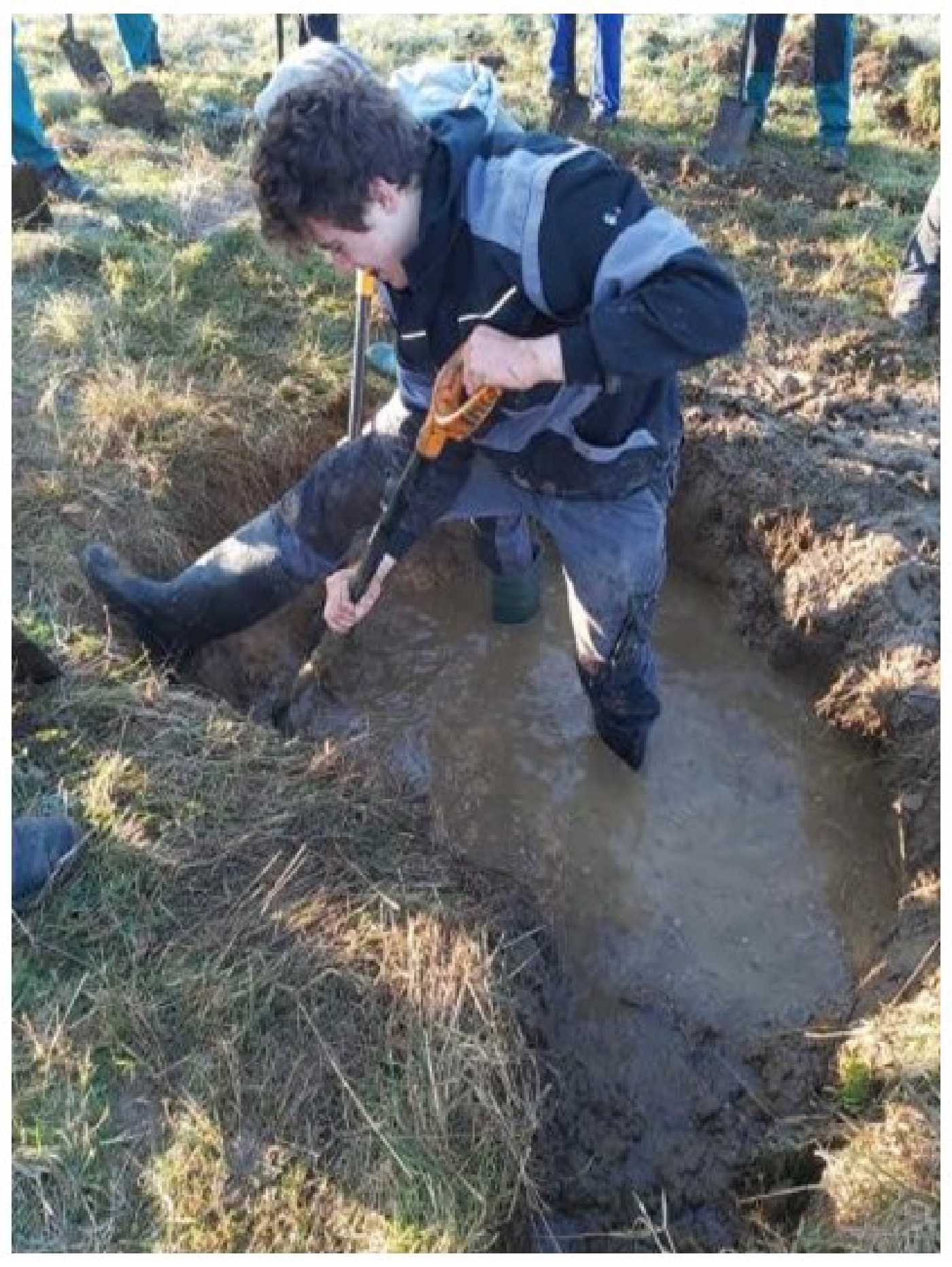
“The way I understood the project was that I was inspired by the teacher at the introductory seminar who said that she was going in with a clean sheet of paper and the children were doing everything. I also try to let the children invent everything and it makes them very happy when they get something right. I try to interfere as little as possible, and even though they’re in sixth grade, they’re capable – they can communicate with the principal, they’ll go to the cooks in the cafeteria, they’ll talk on the radio, and they get joy out of all of it.”
Eva Kučerová, Elementary School Býšť
What fundamental parameters do we need to change in the Czech Republic in order to develop participatory approaches in education?
Barriers in educational practice
In practice, educators encounter numerous barriers to implementing a participatory approach. It is the lack of preparation and support for teachers that is linked to barriers in general pedagogical values, attitudes, and skills. Many teachers have problems in applying a participatory approach (e.g., “The problem is ’leave it to the children and up to the children’ – the teacher should lead and guiding students towards the ‘right’ direction17.”). This is an attitudinal barrier (e.g., the teacher lacks the confidence/self-esteem to dare to open up space to students, prefers to exercise “power” over students, or refuses or neglects to consider such an approach necessary), and the reason it persist is a lack of knowledge and mastery of any appropriate participatory techniques (which can, in retrospect, again, reinforce insecurity); for example, a lack of experience with feedback (or the overuse of evaluative feedback as opposed to descriptive feedback) also hinders participation. Often, a respectful approach to students is also lacking.18 At the same time, large differences in didactic practices and the ability to apply effective approaches to teaching were also observed among the teachers involved.
Educators often experience other significant barriers as well to implementing a participatory approach, mainly due to:
Time and human capacity: this is both the time for students’ direct work and teachers’ preparation and evaluation of the teaching, which, at least in the transition to this way of teaching, is more demanding than conventional frontal teaching (e.g., “If the pupils formulate questions and hypotheses themselves, plan the procedure themselves, [then] it always takes more time than if they were given everything prepared in advance”; it’s “Demanding for understanding, preparation, teaching time, and the skills and work habits of both teachers and students”).
Organisation of teaching: apart from the total instruction time, the predominant form of lesson-structuring (into the 45-minute lesson format, which is enshrined in the legislation; although it allows for combining lessons in justified cases) is also limiting, and this is the most frequently-cited barrier (“Activities require larger teaching units than 45 minutes, especially at [the] secondary level [and] this is a problem.”).
Attitudes and fears of other actors: teachers often anticipate or have direct experiences of negative reactions from other actors and related fears, e.g., parents’ fears that students will not learn what they are supposed to in through this method of teaching, the rejection of active forms of learning, or the low level of support from controlling bodies (inspection), school management, or colleagues (other teachers).
Curriculum content in the school education programmes: although it is largely up to schools to determine the number of materials they will include in their curricula, they often include far too many due to the need to “cover all the material”, and this prevents more extensive coverage of a particular topic or problem therein as well as the real development of relative skills and attitudes.
“We let the kids do everything. They don’t get anything on a silver platter: discover things for yourselves and figure out how to learn and implement those things for yourself.”
Helena Martincová, Elementary School Machov
The best and most progressive examples of participatory approaches in the field of EE in the Czech Republic
There are several dozen organisations in the Czech Republic that are focused on EE and education for sustainability (e.g., not only environmental education centres, eco-centres, but also organisations focused on global development and civic education). Some of these organisations develop and offer schools and other educators methodologies based on participatory approaches.
Examples of national programmes with strong participatory approaches include the following methodologies focused on EE and education for sustainability:
- The Eco-school Programme (Tereza, education centre)
- The School for Sustainable Living Programme (SEEER Environmental Education Centre): 9 other organisations across the Czech Republic are involved
- The Active Citizens Programme (Variants: People in Need)
Other organisations with such programmes include environmental education centres like Lipka or global development education organisations like NaZemi or ARPOK.
In the field of civic education, there are organisations focused on participatory approaches in education whose programmes also partly involve EE. These include the Centre for Democratic Learning19 or the Centre for Civic Education20.
The activities of some organisations dealing with the non-formal education of children and youth are also significant in this respect (e.g., the Scouts on Earth initiative21 and educational model on “Involvement in Society”, or the Czech Council for Children and Youth’s “72 Hours” initiative).
The topic of participatory education is frequently a part of various EE meetings, such as the annual EE fairs and national and regional EE conferences (e.g., in the 2018 regional KaPraDí Conference in the Hradec Králové Region on the topic of “Active Citizenship”, or the 2^nd^ National EEVO Conference in Brno on the topic of “Changing the World?”). In 2022, in parallel with the World Environmental Education Congress, the Czech Republic hosted the International Youth Environmental Education Congress, an event that hosted over 120 youths from 22 different countries aimed at engaging young people in debates on the direction of EE. The result of their work together was a message for decision-makers and educators centred around “connecting our education and participation in a time of climate crisis22.”
At the government-level, the topic is mainly addressed by the Education Committee of the Government Council for Sustainable Development23. Given the importance of NGOs, the topic of linking formal (i.e., school) and non-formal education is also important, and the recently established working group on linking formal and non-formal education at the Ministry of Education and Science can also play a role.
Framework Educational Programme for Pre-school Education, Framework Educational Programme for Primary Education, Framework Educational Programme for Grammar School Education, Framework Educational Programmes for Secondary Vocational Education — see Rámcové vzdělávací programy ↩︎
CSI (2016). Thematic report Education in global and development issues in primary and secondary schools. Prague.
Činčera, J., Jančaříková, K., Matějček, T, Šimonová, P., Bartoš, J., Lupač, M. & Broukalová, L. (2016). Environmental education from the perspective of teachers. Brno: BEZK; Masaryk University; Agency Koniklec.
Kroufek, R. & Činčera, J. (2021). Methodological framework for environmental literacy in schools. Summary report.
Thematic Report — Environmental Education in Primary Schools in the School Year 2019/2020, Czech School Inspectorate 2020 www.csicr.cz ↩︎
e.g. web Učíme venku ↩︎
e.g. the Globe programme and the website Badatelé.cz — Chcete, aby učení bavilo děti i Vás? ↩︎
e.g. the School for Sustainable Living programme and the website Škola pro udržitelný život ↩︎
e.g. the CO2 League climate programmes, the Climate School for Sustainable Living, the climate branch of the Active Citizens programme, and most recently the website Učím o klimatu ↩︎
e.g. materials from the CIVIS project — Civis: Zaostřeno na občanské a sociální kompetence ,
material Goals and indicators for environmental education, education and awareness in the Czech Republic (2011) -Cíle a indikátory pro environmentální vzdělávání, výchovu a osvětu v České republice,
Recommended Expected Outcomes for Cross-Cutting Themes for Primary Education and Recommended Expected Outcomes for Cross-Cutting Themes for Secondary Schools — Environmental Education — Doporučené očekávané výstupy environmentální výchovy ↩︎
e.g. Kroufek, R. & Činčera, J. (2021). Methodological framework for environmental literacy in schools. Summary Report. and Thematic Report — Environmental Education in Primary Schools in the School Year 2019/2020, Czech School Inspectorate 2020 - Environmentální výchova na základních školách ve školním roce 2019 ↩︎
Czech Republic 2030 — Česká republika 2030 ↩︎
Methodology for the participation of non-governmental non-profit organisations in advisory and working bodies and in the development of state administration documents, Government Council for Non-Governmental Non-Profit Organisations 2022 - Metodika participace nestátních neziskových organizací v poradních a pracovních orgánech a při tvorbě dokumentů státní správy ↩︎
Fryč, J. et al. (2020). Strategy of the Education Policy of the Czech Republic until 2030+. (Ministry of Education, Youth and Sports - Strategie vzdělávací politiky ČR do roku 2030+ ↩︎
State Programme of Environmental Education, Education and Awareness and Environmental Counselling 2016-2025. MINISTRY OF ENVIRONMENT 2016 - Státní program environmentálního vzdělávání, výchovy a osvěty a environmentálního poradenství 2016-2025. ↩︎
E.g. Chinchera, J., Boeve-de Pauw, J., Goldman, D., and Simonova, P. (2018). Emancipatory or instrumental? Students’ and teachers’ perceptions of the implementation of the EcoSchools program. Environmental Education Research. 25(7), 1083-1104. ISSN 1350-4622. Available from:
Činčera, J. and Krajhanzl, J. (2013). Eco-Schools: what factors influence pupils’ action competence for pro-environmental behaviour? Journal of Cleaner Production. 61, 117-121. ISSN 1879-1786. Available from: Eco-Schools: what factors influence pupils' action competence for pro-environmental behaviour?
Trott, C.D. (2019). Children’s constructive climate change engagement: Empowering awareness, agency, and action. Environmental Education Research. 26(4), 532-554. ISSN 1350-4622. Available from: https://doi.org/10.1080/13504622.2019.1675594 ↩︎
Framework curriculum for primary education - Rámcové vzdělávací programy ↩︎
For more details, see Space for the development of responsible behaviour towards nature and people in the RDP and selected curricula — results of comparative analysis. Centre for Environmental Education SEEER and Variants — People in Need. Project CIVIS. (2019) - Prostor pro rozvoj odpovědného jednání k přírodě a lidem v RVP a vybraných ŠVP. Výsledky srovnávací analýzy ↩︎
Citation of the consultant’s observation at the school within the CIVIS project — Kulich, J. (2019): Analysis of barriers limiting the teacher’s work in developing responsible behaviour of pupils towards nature and people. Centre for Environmental Education SEEER. CIVIS project. — Analýza bariér omezujících práci učitele při rozvíjení odpovědného jednání žáků vůči přírodě a lidem ↩︎
Kulich, J. (2019). Analysis of barriers limiting the teacher’s work in developing students’ responsible behaviour towards nature and people. Centre for Environmental Education SEEER. CIVIS project. — Analýza bariér omezujících práci učitele při rozvíjení odpovědného jednání žáků vůči přírodě a lidem ↩︎
Youth Challenge Message Youth Challenge: Bridging our Education and Participation in Times of Climate Urgency ↩︎